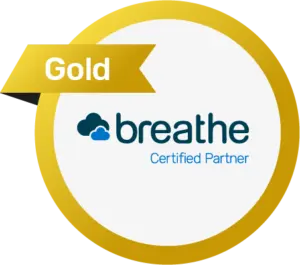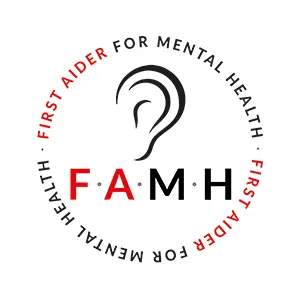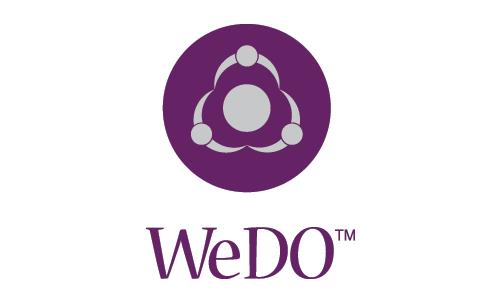A Guide to Managing Employees with Long Term Sickness

Recent national Statistics (ONS) have shown that more than 2.5 million people in the UK are no longer working due to sickness. Mental health issues, neck and back problems due to home working are believed to have contributed to this sharp rise. While long-term sickness is more likely in industries such as manufacturing and other physical industries, the figures show that all industries have to take long term sickness and sickness absence seriously.
In the realm of modern workplaces, fostering an inclusive and supportive environment for all employees is of paramount importance. One aspect that demands delicate handling is managing employees who have a long-term health condition. These employees require empathy, flexibility, and effective communication to ensure their well-being while maintaining productivity.
In this blog, we will delve into strategies for managing employees with long term sickness, and fostering an atmosphere of compassion. We will also look at how to drive success both for the individual and the organisation.
Sickness Policy for your employees
A well-crafted sickness policy serves as a cornerstone of a fair and efficient workplace. This policy outlines guidelines and procedures for employees who are unable to work due to ill health, ensuring consistency and transparency in how such situations are managed. As an employer, you should have a comprehensive sickness policy. This typically covers reporting procedures, notification timelines, required documentation (for example medical information or medical evidence), and the provision of sick leave benefits.
By clarifying expectations and procedures, a sickness policy not only supports employees during times of illness but also enables employers to effectively plan and allocate resources, promoting a harmonious balance between the well-being of the workforce and the operational needs of the organisation. Having this policy in place may also help you avoid legal risk in the future.
Track Sickness with HR Software
By monitoring absences, you can gain valuable insights into common health problems, trends, patterns, and potential underlying issues that might impact productivity, employee well-being, and how this can lead to long term sickness. This data-driven approach empowers you to make informed decisions, ensure optimal resource allocation, maintain a positive work culture, and uphold transparency and accountability in your workforce management practices.
An easy and reliable way to track long term sick leave is through an online HR admin software. We use Breathe HR in our business and also help our clients with accessing the system.
Stay in Touch
Maintaining a line of consistent communication with your employee is part of managing sickness absence. It’s important to schedule regular check-ins with your sick employee to discuss progress, challenges, and any reasonable adjustments required. This will also allow you to stay updated on their health and how they are feeling. It’s important to take notes during these meetings so you have a record of this.
Access to Resources
Another way to manage long term sickness absence and employee wellbeing in general is to provide access to resources that support your employee’s physical and emotional well-being:
Employee Assistance Programs (EAPs)
Employee Assistance programs offer a comprehensive range of confidential support services designed to assist employees in managing personal and work-related challenges that could impact their overall health and performance. EAPs typically encompass a spectrum of services, including mental health counselling, stress management, financial and legal consultations, substance abuse assistance, and resources for dealing with life transitions. By providing employees with access to these resources, organisations demonstrate a genuine commitment to their staff’s holistic well-being, fostering a supportive and caring work environment.
Wellness Initiatives for employees with long term absence
Wellness initiatives play a transformative role in aiding employees dealing with long-term sickness. These initiatives offer a spectrum of proactive and holistic support mechanisms that extend beyond medical treatment. By incorporating wellness programs into the workplace, you empower individuals with tools to manage their health challenges more effectively. These initiatives often include activities like yoga, meditation, mindfulness sessions, nutrition guidance, and stress management workshops. Engaging in these wellness practices can alleviate the physical and emotional toll of long-term sickness, reduce stress, enhance mental resilience, and improve overall quality of life.
Understanding Sick Pay
Sick pay serves as a vital safety net for employees facing illness or injury, providing them with financial support during periods of absence from work. Statutory Sick Pay (SSP) is a legal entitlement for eligible employees, offering a fixed amount of £96.35 per week for up to 28 weeks as of 2024. However, many employers choose to offer enhanced sick pay schemes to provide additional support to their workforce, which may include higher pay rates or extended periods of cover based on the employee’s length of service and company policies.
Occupational Health and Reasonable Adjustments
Occupational health services play a pivotal role in promoting employee wellbeing and facilitating their return to work following illness or injury. These services encompass a range of interventions, including health assessments, advice on workplace adjustments, and support for employees with long-term health conditions. Employers have a legal obligation under the Equality Act 2010 to make reasonable adjustments to accommodate employees with disabilities or health conditions. Reasonable adjustments may include modifying work duties, providing assistive technology, or adjusting working hours to ensure that employees are not disadvantaged due to their health status.
Legal Framework
The Equality Act 2010 serves as the cornerstone of anti-discrimination legislation in the UK, prohibiting discrimination on the grounds of protected characteristics such as disability, race, gender, age, and religion. Employers are required to adhere to the Act’s provisions by ensuring equal opportunities, preventing harassment and victimisation, and making reasonable adjustments for disabled employees. Failure to comply with the Equality Act can result in legal action, including claims of unfair dismissal or discrimination, which may be pursued through employment tribunals or civil courts.
Statutory Sick Pay and Annual Leave
Statutory Sick Pay (SSP) provides employees with a financial safety net during periods of illness, but it may not fully cover their living expenses, especially for those with long-term health conditions. Employees continue to accrue annual leave entitlement while on sick leave, allowing them to take paid time off for rest and recuperation. Employers are encouraged to adopt flexible approaches to managing annual leave, such as allowing employees to carry over unused leave or facilitating its use during or after sickness absence, in accordance with employment legislation and contractual agreements.
Fit Note and HR Services
A fit note, issued by a healthcare professional, certifies an employee’s fitness for work or provides details of their health condition and potential adjustments required. Fit notes play a crucial role in absence management, informing employers of the employee’s health status and facilitating discussions around their return to work. HR services are instrumental in supporting employees on long-term sick leave, coordinating with occupational health providers, and implementing return-to-work programmes tailored to the individual’s needs. Effective communication and collaboration between HR professionals, line managers, and employees are essential for ensuring a smooth transition back to work.
Unfair Dismissal and Legal Advice
Unfair dismissal occurs when an employee is dismissed without a valid reason or due to discriminatory practices. Employees who believe they have been unfairly dismissed can seek legal advice and may pursue claims through employment tribunals or civil courts. Employers must follow fair and transparent dismissal procedures, including providing reasons for dismissal, offering opportunities for appeal, and ensuring compliance with statutory requirements. Legal advice is invaluable for both employers and employees navigating complex employment law issues, ensuring their rights and obligations are upheld throughout the process.
Holiday Entitlement and Medical Advice
Employees on sick leave continue to accrue holiday entitlement in line with their employment contracts, providing them with opportunities for rest and recuperation. Employers may allow employees to carry over unused holiday entitlement to the following year or facilitate its use during or after sickness absence, in accordance with legal requirements and organisational policies. Seeking medical advice is essential for employees experiencing health issues, enabling them to receive appropriate treatment, manage their condition effectively, and make informed decisions about their return to work.
Citizens Advice and Long-Term Sick Pay
Citizens Advice offers free and impartial advice on a wide range of legal and employment matters, including sick pay entitlements, workplace rights, and discrimination issues. Employees facing long-term sickness may be eligible for additional support, such as long-term sick pay or disability benefits, depending on their individual circumstances and the nature of their health condition. Citizens Advice can provide guidance on navigating complex legal processes, accessing relevant support services, and advocating for fair treatment in the workplace.
Returning Employees and Short-Term Absence
Facilitating the return of employees after sickness absence requires careful planning and coordination between employers, employees, and relevant stakeholders. Employers should conduct return-to-work interviews to discuss the employee’s health status, assess their ability to resume work duties, and identify any necessary adjustments or support mechanisms. Addressing short-term absence proactively through effective absence management policies and interventions can help prevent prolonged periods of sickness and minimise disruption to the business.
Sick pay, occupational health, and legal considerations are integral components of the modern workplace, shaping employer-employee relations and promoting a culture of inclusivity, fairness, and respect. By understanding statutory obligations, implementing proactive absence management strategies, and seeking appropriate advice when needed, employers can navigate the complexities of sickness absence and ensure equitable treatment for all employees. Effective management of sick pay, occupational health, and legal aspects fosters a supportive work environment, enhances employee wellbeing, and contributes to the overall success and sustainability of the organisation.
Sick pay is more than just a financial provision; it is a lifeline for employees facing illness or injury. Understanding the intricacies of sick pay entitlements, such as statutory sick pay (SSP) and enhanced sick pay schemes, demonstrates an employer’s commitment to supporting their workforce during times of need. Implementing clear policies and procedures for sick pay ensures transparency and consistency, fostering trust and confidence among employees.
Occupational health services go beyond mere compliance; they represent a proactive approach to employee wellbeing. By investing in occupational health assessments, employers demonstrate a commitment to identifying and mitigating potential health risks in the workplace. Furthermore, providing access to occupational health professionals for advice and support signals an organization’s dedication to promoting a healthy work environment and preventing long-term sickness absence.
Legal considerations surrounding sickness absence are not just legal obligations; they are ethical imperatives. Adhering to the Equality Act 2010 and other relevant legislation ensures that employees are treated fairly and equitably, regardless of their health status or disability. Employers who make reasonable adjustments and accommodate employees’ needs demonstrate a commitment to diversity and inclusion, creating a workplace where all individuals can thrive.
Implementing proactive absence management strategies is not just about efficiency; it is about compassion and support. Conducting return-to-work interviews, providing ongoing communication and support to employees on sick leave, and offering rehabilitation programs demonstrate an organization’s commitment to employee wellbeing and recovery. By fostering a supportive environment, employers not only facilitate the return of employees to work but also build loyalty and engagement among their workforce.
Seeking appropriate advice when navigating sickness absence issues is not a sign of weakness; it is a demonstration of prudence and responsibility. Consulting with legal advisors, occupational health professionals, and HR experts ensures that employers make informed decisions that comply with legal requirements and best practices. By leveraging external expertise, employers can address complex issues effectively and mitigate potential risks associated with sickness absence management.
Effective management of sick pay, occupational health, and legal aspects is not just about compliance; it is about creating a culture of care and support. Organizations that prioritize employee wellbeing and invest in comprehensive sickness absence management systems reap the rewards of increased productivity, reduced absenteeism, and enhanced employee satisfaction. Ultimately, fostering a supportive work environment contributes to the overall success and sustainability of the organisation, driving performance and achieving business objectives.
Sick pay, occupational health, and legal considerations are integral components of a holistic approach to employee wellbeing and organisational success. By recognising the importance of these components and taking proactive measures to address them, employers can create a workplace where employees feel valued, supported, and empowered to perform at their best.
Contact Us
If you are in need of support with managing long term sickness or need advice on next steps beyond this, our HR consultants are here to help.
Are you ready to elevate your HR strategies?
Connect with our expert team for tailored solutions and insights. Call The HR Booth at 01383 668178 or reach out via email at info@thehrbooth.co.uk or use the contact form.








